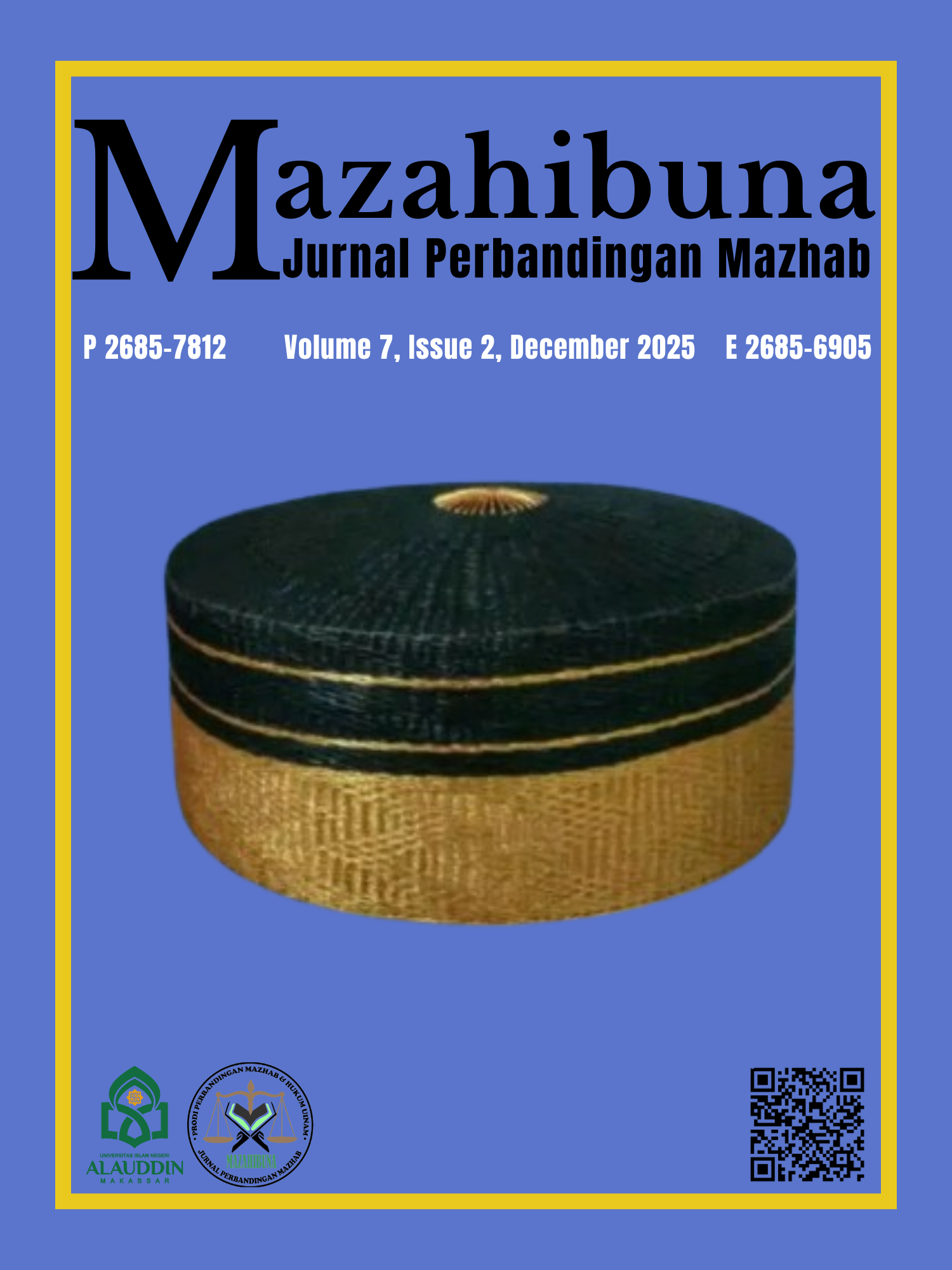The Principles of Natural Justice: A Comparative Analysis between Secular and Islamic Law in Administrative Decision-Making
DOI:
https://doi.org/10.24252/mazahibuna.vi.56855Keywords:
Natural Justice, Islamic Law, Common Law, Comparative Law, Rule against BiasAbstract
This study aims to examine the principles of natural justice as conceptualized and applied in both common law and Islamic legal systems, with particular attention to the right to a fair hearing (audi alteram partem) and the rule against bias (nemo judex in causa sua). The underlying values, interpretive methods, and procedural expressions of these principles were also assessed across distinct legal traditions. The study procedures were carried out using a qualitative comparative legal methodology. Data were obtained from primary sources, judicial precedents, and scholarly interpretations to analyze the doctrinal foundations and practical applications in both systems. The results showed that although Islamic law was based on religious texts and common law on judicial precedents, both systems upheld the core values of justice, fairness, impartiality, and procedural integrity. Islamic law established these principles in the Qur’an, Sunnah (Hadith), and interpretive tools, such as ijtihād, maṣlaḥah, and istiḥsān, while common law emphasized constitutional norms and case law. The originality of this study lies in its integrated approach, which shows both the convergence and divergence of procedural justice across secular and religious frameworks. The results are significant for fostering cross-cultural legal understanding and informing reforms in pluralistic jurisdictions. Although primarily theoretical, this current study provides a foundation for future empirical studies in countries such as Malaysia, Indonesia, and Nigeria, where both systems co-exist. These further studies could enrich discussions on legal pluralism and support the development of more inclusive legal systems.
References
Abdelzaher, D. M., Kotb, A., & Helfaya, A. (2019). Eco-Islam: Beyond the Principles of Why and What, and Into the Principles of How. Journal of Business Ethics, 155(3), 623–643. https://doi.org/10.1007/s10551-017-3518-2
Abra, E. H., & Wahanisa, R. (2020). The Constitutional Court Ultra Petita as a Protection Form of Economic Rights in Pancasila Justice. Journal of Indonesian Legal Studies, 5(1), 187–224. https://doi.org/10.15294/jils.v5i1.35965
Ahmad, N., Haji Zainal, H. N., Shamsu, L. S., & Zamri, Z. (2025). Challenges of the Insanity Defence: Legal Perspectives on Mental Illness and Criminality in Brunei’s Dual Legal System. Manchester Journal of International Economic Law, 20(4), 150–177. https://doi.org/10.2139/ssrn.5197445
Ahmad, S., Qamar, A. J., Bhatti, M. A. A., & Bashir, U. (2023). Integrating Islamic Ethics with Modern Governance: A Comprehensive Framework for Accountability Across Religious, Social, and Economic Dimensions. Al-Irfan, 8(15), 51–79. https://doi.org/10.58932/MULB0043
Aljber, A. A. M., Javaheri Tehrani, M., Vaezi, S. M., & Mardani, N. (2025). The Role of the Federal Supreme Court in Ensuring the Supremacy of Moral Custom and Islamic Law in Iraq TT -. Ijethics, 6(4), 11–20. https://doi.org/10.22034/ijethics.6.4.11
Downloads
Published
How to Cite
Issue
Section
License
Copyright (c) 2025 Yusuf Sani Abubakar, Rajali Haji Aji, Mpawenimana Abdallah Saidi

This work is licensed under a Creative Commons Attribution 4.0 International License.

This work is licensed under a Creative Commons Attribution 4.0 International License.
Authors who publish with Mazahibuna: Jurnal Perbandingan Mazhab agree to the following terms:
- Authors retain copyright and grant the Mazahibuna: Jurnal Perbandingan Mazhab right of first publication with the work simultaneously licensed under Creative Commons Attribution License (CC BY 4.0) that allows others to share the work with an acknowledgment of the work's authorship and initial publication in this journal.
- Authors can enter into separate, additional contractual arrangements for the non-exclusive distribution of the published version of the work (e.g., post it to an institutional repository or edit it in a book), with an acknowledgment of its initial publication in this journal.
- Authors are permitted and encouraged to post their work online (e.g., in institutional repositories or on their website) before and during the submission process, as it can lead to productive exchanges, as well as earlier and greater citation of published work.










